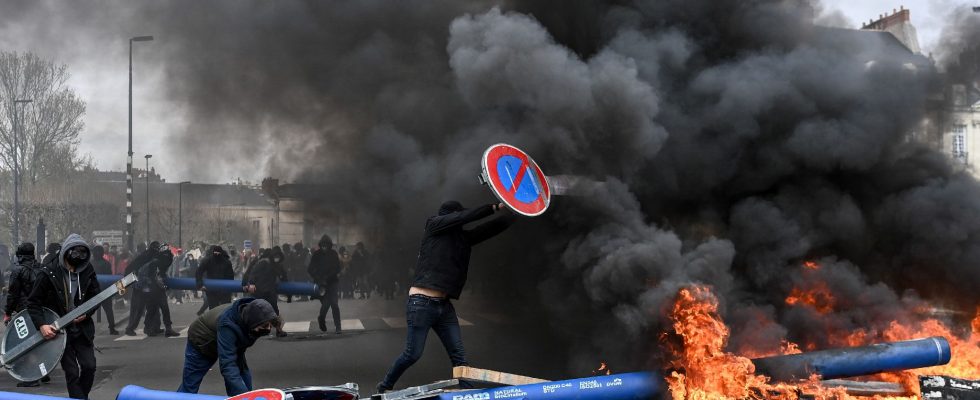Images of smashed windows and throwing projectiles at law enforcement: by broadcasting these excerpts from a television news dating from the beginning of 2021, the Belgian Minister of Justice hoped to defend his controversial “anti-breakers” bill. The text provides for up to three years of prohibition to demonstrate for those who have been found guilty of serious violence during a mobilization.
“We want to introduce a legal ban on participating in protest rallies, not to restrict the right to demonstrate, but to protect this right against criminal thugs,” insisted Vincent Van Quickenborne.
“An attack on the right to demonstrate”
But the three main Belgian trade unions are against this provision. Marie-Hélène Ska, general secretary of the Confederation of Christian Trade Unions (CSC), the country’s leading trade union organization, believes that this is “an attack on the right to demonstrate”. According to her, the text, if adopted, could go beyond the scope of traditional events. Example: “in a neighborhood committee, you are mobilizing because you do not want an industrial chicken coop to come to your home. If you occupy this space, it could be considered tomorrow by a judge as an attack on your reputation. of the company that comes to settle there”, she indicated to France info.
The proposal comes as a social conflict has been going on for two months around the Delhaize supermarket chain. This Monday, May 22 was also organized a national event against “social dumping practices” and “severe attacks on the right to strike” in this case, while the management of Delhaize wishes to franchise the 128 stores of the brand.
In France, a law partially revoked
In France, several “anti-thugs” laws have been adopted in the past, the last of which was in 2019. The Constitutional Council had censored its article 3 which allowed certain people to be prohibited from gathering on the public highway for a month on decision of the prefect, as for violent supporters. The textproposed on the initiative of Bruno Retailleau, targeted in its original version any person constituting “a particularly serious threat to public order”, that is to say having committed “serious attacks on the integrity physical injury to people as well as significant damage to property” or even “a violent act” during previous demonstrations, without necessarily that there has been a conviction.
In its final version, the 2019 law created an offense of willfully concealing “all or part” of the face, punishable by one year in prison and a 15,000 euro fine. This more serious offense is actually in addition to a fine already existing for these same reasons.
The text also allows searches of people, their bags and vehicles, in and around demonstrations. According to the principle of the “caseur pays”, this law also offers the State the possibility of prosecuting the authors of damages.
Towards a new “anti-breaker” law?
But at the beginning of May, the Keeper of the Seals Eric Dupond-Moretti explained that a reflection was underway around a new “anti-breaker” law. On RTLhe insisted on the duty of firmness: “there are the demonstrators who demonstrate and it is a freedom that the Constitution recognizes for them, and then there are the thugs. that they come there to destroy, to demolish, to break the cop, to kill”, he affirmed.
But on France info, more measured, the Minister of Justice then considered that it was more appropriate to act “in reflection” than in “emotion”. Doubts said to be shared by lawyer Arié Alimi, a member of the League for Human Rights, who wondered about the usefulness of “an ever more repressive legislative inflation”. For the lawyer, “that’s not the right answer, because there is already a particularly voluminous Penal Code, which the police no longer know which offense to choose when they have to arrest people in the demonstrations”.
